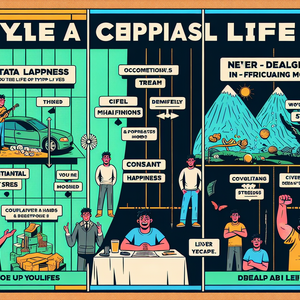The Hidden Power of Synonyms in Everyday Language

At its core, communication is about connection. The words we choose can either bridge gaps or create misunderstandings. Synonyms provide us with a palette of options, allowing us to select the most appropriate word for a particular context. For instance, consider the difference between saying "happy" and "ecstatic." While both words convey a positive emotion, "ecstatic" adds a layer of intensity that can evoke a stronger reaction from the listener. This nuanced choice can make our communication more engaging and impactful. In addition to enhancing emotional expression, synonyms can help avoid repetition, which can dull the reader's or listener’s interest. In professional settings, the repeated use of the same term can lead to monotony. By employing synonyms, one can maintain the audience's attention and enhance the overall flow of a conversation or written material. For example, instead of saying "the project was successful" multiple times, one might alternate with "the project was triumphant," "the project exceeded expectations," or "the project achieved remarkable results." This variation not only keeps the audience engaged but also paints a richer picture of the subject at hand.
Improving Writing Quality
In the world of writing, synonyms serve as powerful tools for refinement. Writers often strive for a voice that resonates with their audience, and the careful selection of synonyms can be key to achieving that goal. Consider a novelist describing a character’s demeanor. Instead of simply stating that a character is "angry," a writer might choose to describe them as "furious," "irate," or "seething." Each synonym carries a slightly different connotation, allowing the writer to convey the character’s emotional state more accurately and vividly. Moreover, synonyms can enhance the quality of academic and professional writing. Academic papers, reports, and presentations often require a formal tone, and precise language is crucial. By incorporating synonyms, writers can avoid redundancy and demonstrate a broader vocabulary, which can bolster their credibility. For instance, in an academic paper discussing "results," a writer could also refer to "findings," "outcomes," or "conclusions" to provide a richer analysis of their work. Utilizing synonyms can also help writers engage with their audience more effectively, making complex ideas more accessible.
Influencing Perceptions
The power of synonyms extends beyond mere word choice; it can significantly influence perceptions. Language shapes our thoughts, and the synonyms we choose can frame our messages in specific ways. For example, referring to an individual as "frugal" versus "cheap" can lead to vastly different interpretations. While both terms relate to financial conservativeness, "frugal" carries a positive connotation of being wise with money, whereas "cheap" suggests a lack of generosity or quality. This power of perception is particularly evident in marketing and branding. Companies carefully select their language to evoke particular feelings or associations. For example, a brand that describes its products as "affordable" rather than "cheap" aims to present itself as accessible without compromising on quality. Similarly, a luxury brand may use terms like "exclusive" or "premium" to convey a sense of desirability and prestige. In this way, the choice of synonyms can significantly shape how consumers perceive a brand and its offerings.
In conclusion, the hidden power of synonyms in everyday language is profound and multifaceted. By enhancing communication, improving writing quality, and influencing perceptions, synonyms allow us to express ourselves more effectively and persuasively. As we navigate various contexts—from casual conversations to professional correspondence—being mindful of our word choices can enrich our interactions and deepen our connections with others. The next time you find yourself reaching for a word, consider the synonyms at your disposal; they may just hold the key to transforming your message into something truly powerful. The use of resources like a thesaurus can aid in this endeavor, helping individuals discover the perfect word to convey their thoughts with clarity and impact.
Content Strategist
Media agencies, digital marketing firms, e-commerce platforms
Responsibilities
Develop and implement content strategies that align with business objectives and audience needs.
Analyze performance metrics to optimize content for various platforms, enhancing engagement and reach.
Collaborate with marketing, design, and product teams to ensure consistency in messaging and branding.
Unique Skills/Qualifications
Strong understanding of SEO and analytics tools like Google Analytics; experience in content management systems (CMS).
Copywriter for Marketing Campaigns
Advertising agencies, tech startups, consumer goods firms
Responsibilities
Create compelling copy for various marketing materials, including ads, emails, and social media posts, that drive conversions.
Conduct market research to understand target audiences and tailor messages that resonate with them.
Collaborate with designers and marketing teams to ensure cohesive branding and messaging across all channels.
Unique Skills/Qualifications
Ability to write in different tones and styles; familiarity with A/B testing and conversion rate optimization.
Brand Messaging Specialist
Consumer brands, luxury goods manufacturers, corporate firms
Responsibilities
Develop and refine brand messaging frameworks that define how the brand communicates with its audience.
Conduct competitive analysis to identify unique value propositions and ensure differentiation in the marketplace.
Work closely with product development and marketing teams to maintain brand voice and consistency across all materials.
Unique Skills/Qualifications
Strong background in brand strategy; excellent communication and storytelling skills.
Technical Writer
Software development firms, engineering companies, technology consultancies
Responsibilities
Create clear and concise documentation for software applications, user manuals, and technical specifications.
Collaborate with engineers and product managers to gather information and ensure accuracy in content.
Utilize visual aids, such as diagrams and charts, to enhance understanding of complex topics.
Unique Skills/Qualifications
Proficiency in tools like MadCap Flare or Adobe FrameMaker; understanding of technical concepts and terminologies.
Social Media Manager
Digital marketing agencies, retail brands, non-profit organizations
Responsibilities
Develop and execute social media strategies that increase brand awareness and engagement across platforms.
Monitor and analyze social media metrics to gauge the effectiveness of campaigns and adjust tactics accordingly.
Create and curate content, including graphics and videos, that align with brand identity and target audience interests.
Unique Skills/Qualifications
Familiarity with social media management tools like Hootsuite or Buffer; ability to stay abreast of social media trends and analytics.


